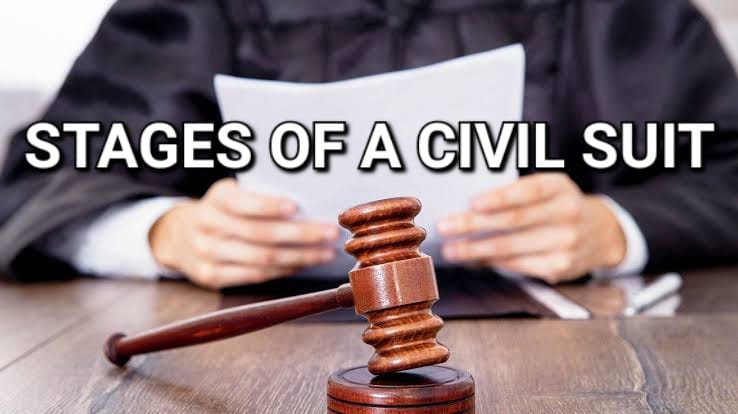18 Stages Of Civil Suit as per C.P.C, 1908
Introduction:
A civil suit involves disputes that arise between individuals in a personal capacity, such as cases related to partition, property, and more, or between organizations in commercial matters. When the dispute is of a personal nature, it is governed by the Civil Procedure Code of 1908. In the case of commercial disputes, the Commercial Court Act also plays a crucial role.
Civil suits can be categorized into two types:
i) Suits of a civil nature and
ii) Suits not of a civil nature.
Civil courts have jurisdiction to handle suits of a civil nature but lack the authority to adjudicate suits that do not fall under this category. This principle is articulated in Section 9 of the Civil Procedure Code, which grants civil courts jurisdiction over all suits of a civil nature, except those expressly or impliedly barred.
1. Presentation of plaint:-
The Presentation of a plant is the first step of all the civil proceedings in India. A case in a court is instituted by the filing of the plaint. The expression “plaint” has not been defined in the act. However, it can be said to be a statement of claim, a document by the presentation of which the suit is instituted.
Section 26 and Order VII deals with Institution of Suits:
Every suit shall be instituted by the presentation of a plaint or in such other manner as me be prescribed. And Order VII deals with the contents of Plaint such as mentioned herein below:-
- Particulars
- Name of the Court
- Details of the Party
- Facts of the Dispute involved between the party
- Relief Sort
- Jurisdiction
- The Documents on which the party is relying upon.
2. Service of summons on the defendant:
After the plaint is filed, the court may accept or reject the plaint, if the court accepts the plaint, the summon will be issued under Section 27 of CPC, 1908 to the defendant asking him to appear with a legal representative and answer the claim and court to defend it. The intimation which is sent to the defendant by the court is known as a “Summons”.
3. Filing of Written Submission
The defendant needs to present a written submission within 30 days from the date of summoning has issued against him(s.27). In case he failed to file a written Statement (WS) within the specified time he needs to seek permission from the court to file it later but it is not beyond 90 days.
3. Appearance of parties
4. Ex-parte Decree
5. Interlocutory Proceedings
6. Filing of written statement by defendant
7. Production of documents by parties (plaintiff and defendant)
8. Examination of parties
9. Discovery and Inspection
10. Admission
11. Framing of issues by the court.
12. Summoning And Attendance Of Witnesses
13. Hearing Of Suits And Examination Of Witnesses
14. Argument
15. Judgment
16. Preparation of Decree
17. Appeal, Review, Revision
18. Execution of Decree

